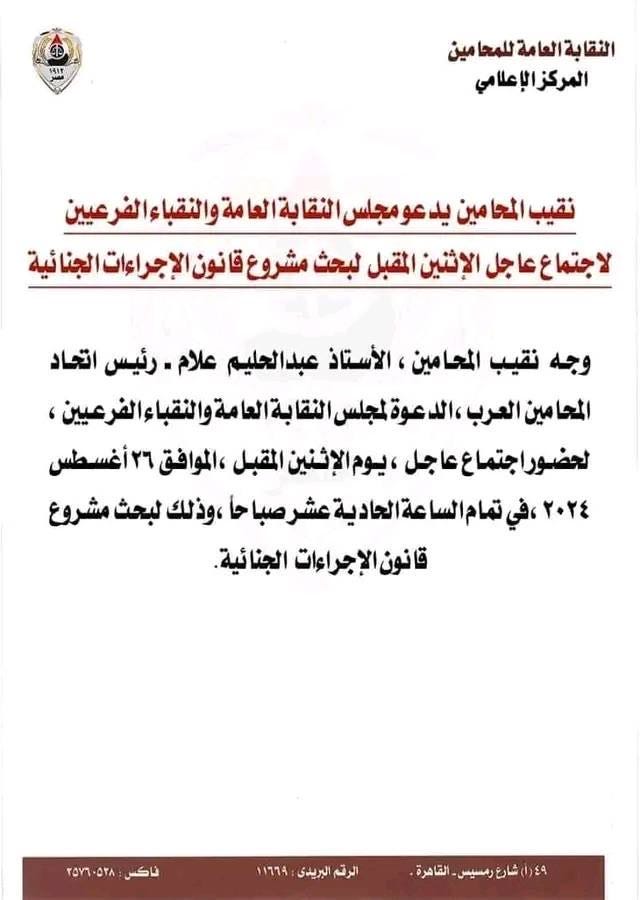This week’s dispatch includes reports on overhauling the Criminal Procedure Code, Egypt and the war in Palestine, Goldgate-linked company, prison deaths, security crackdowns, military business, migration, refugees, surveillance of classrooms, foreign military cooperation, the Red Sea maritime crisis, and Sudan diplomacy.
📁 Pretrial Detention & the Criminal Procedure Code
The regime-sponsored National Dialogue’s Board of Trustees announced last Monday that it submitted its pretrial detention and criminal justice reform recommendations to Sisi, who in turn “directed the government to implement” such recommendations swiftly on Wednesday. The local mainstream press, owned and micro-managed by the GIS, hailed the move as a new step toward more democratic reforms.
Article 143 of Egypt’s Criminal Procedure Code sets specific maximum periods of pretrial detention for different categories of offenses: six months for misdemeanors, 18 months for felonies, and two years if the penalty for the crime is life imprisonment or death. However, thanks to an amendment by interim president Adly Mansour in 2013, the two-year limitation does not apply to cases where a death penalty or life imprisonment sentence is appealed and the defendant is going through a retrial process.
The use of pretrial detention has emerged as one of the regime’s primary tools for incarcerating (and killing) dissidents over the past decades and has drawn intense criticism from local and international rights watchdogs.
Sisi’s latest move, however, is largely hallow and for PR purposes. The regime has invented the practice of “rotation,” whereby pretrial detainees are “recycled” and charged with new offenses in a new fabricated case once the pretrial detention maximum period is reached. So, it doesn’t matter much that Sisi would lower the ceiling of pretrial detention periods since the security services will keep “recycling” the detainees into new cases.
The discussion around pretrial detention is part of overhauling the Criminal Procedure Code, which is expected to be amended and ratified by the rubber stamp parliament. Prominent lawyers, such as Khaled Ali, have pointed out that the proposed amendments include legalizing illegal repressive practices (ongoing since 2013) by the executive and judicial authorities, such as barring defense lawyers from receiving a copy of, or even reading, their defendants’ court case papers!
The head of the Lawyers Syndicate has called for an emergency meeting of its board and provincial heads today to discuss the proposed amendments.
Unlike the Journalists Syndicate, the Lawyers Syndicate is not led by dissidents. However, even when pro-regime figures are in charge, the professional syndicates (which unionize white-collar professionals) must respond to pressure from their constituents on some level, even if the aim is to diffuse potential dissent. Hence, one can understand why the Lawyers Syndicate had to endorse the lawyers’ protests in December 2022 against tax hikes and the national strike to release six detained lawyers in the following month.




